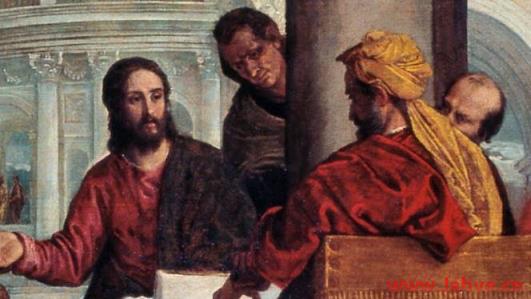 原文|Bishop Barron
原文|Bishop Barron
翻译|Carrie2017-10-29 朋友们,今天的福音把我们带入神圣领域,因为天主的圣言在告诉我们法律的核心。法利塞人试探着问了这个问题:“哪条诫命是最大的?” 辣彼们最爱做的事情就是找出“规中之规”,即能阐明整套法律的某条规则。因此,耶稣给出祂著名的回答:“你应全心、全灵、全意,爱上主、你的天主。这是最大,也是第一条诫命。第二条与此相似:你应当爱近人,如你自己。”归根到底就是爱,爱天主和爱近人是紧紧相联的。如果我们守法,但不去爱,那就是浪费时间。如果我们爱天主,但憎恨近人,也是浪费时间。为什么这两种爱如此紧密联系?因为耶稣不仅仅是天主。祂是天主和人的结合,既有神性也有人性。因此,我们无法只把祂作为天主来爱,而不爱祂亲手创造并欣然接受的人性。Friends, our Gospel for today puts us on very holy ground, since it features the Word of God himself telling us what stands at the heart of the law. The Pharisees pose, as a kind of game, the following question: “Which commandment is the greatest?” It was a favorite exercise of the rabbis to seek out the “canon within the canon,” the law that somehow clarified the whole of the law.So Jesus gives his famous answer: “You shall love the Lord your God with all your heart, all your soul, and all your mind. This is the greatest and first commandment. The second is like it: You shall love your neighbor as yourself.”It’s finally about love, and the love of God and neighbor are inextricably bound to one another. If we follow the law, but don’t love, we’re wasting our time. If we love God, but hate our neighbors, we’re wasting our time.Why are the two loves so tightly connected? Because Jesus is not just God. He is the God-man, the one in whom divinity and humanity come together. Therefore, it’s impossible to love him as God without loving the humanity that he’s created and embraced.
朋友们,今天的福音把我们带入神圣领域,因为天主的圣言在告诉我们法律的核心。法利塞人试探着问了这个问题:“哪条诫命是最大的?” 辣彼们最爱做的事情就是找出“规中之规”,即能阐明整套法律的某条规则。因此,耶稣给出祂著名的回答:“你应全心、全灵、全意,爱上主、你的天主。这是最大,也是第一条诫命。第二条与此相似:你应当爱近人,如你自己。”归根到底就是爱,爱天主和爱近人是紧紧相联的。如果我们守法,但不去爱,那就是浪费时间。如果我们爱天主,但憎恨近人,也是浪费时间。为什么这两种爱如此紧密联系?因为耶稣不仅仅是天主。祂是天主和人的结合,既有神性也有人性。因此,我们无法只把祂作为天主来爱,而不爱祂亲手创造并欣然接受的人性。Friends, our Gospel for today puts us on very holy ground, since it features the Word of God himself telling us what stands at the heart of the law. The Pharisees pose, as a kind of game, the following question: “Which commandment is the greatest?” It was a favorite exercise of the rabbis to seek out the “canon within the canon,” the law that somehow clarified the whole of the law.So Jesus gives his famous answer: “You shall love the Lord your God with all your heart, all your soul, and all your mind. This is the greatest and first commandment. The second is like it: You shall love your neighbor as yourself.”It’s finally about love, and the love of God and neighbor are inextricably bound to one another. If we follow the law, but don’t love, we’re wasting our time. If we love God, but hate our neighbors, we’re wasting our time.Why are the two loves so tightly connected? Because Jesus is not just God. He is the God-man, the one in whom divinity and humanity come together. Therefore, it’s impossible to love him as God without loving the humanity that he’s created and embraced.

微信小程序
微信扫一扫体验

微信公众账号
微信扫一扫加关注
顶部
